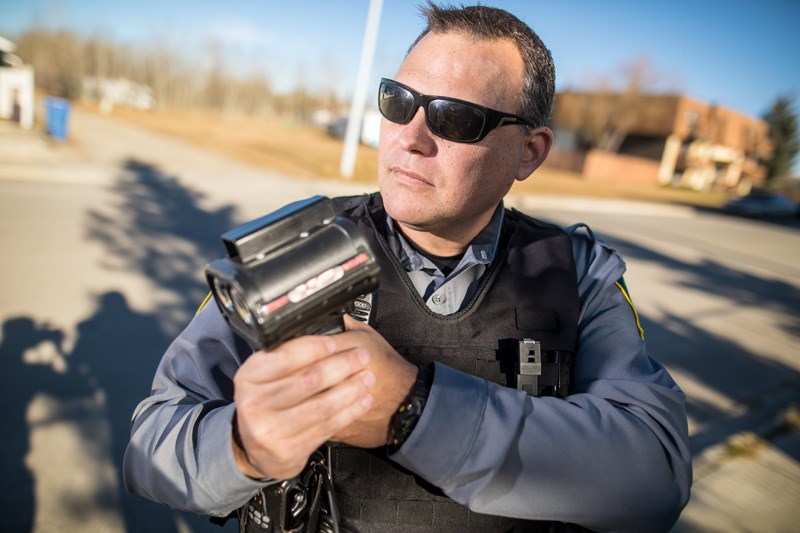While most Turner Valley residents respect in-town speed limits, visitors too often speed on through – sometimes double the speed limit - according to the Town’s patrol supervisor.
“Speeding on Decalta Road and 16th Avenue continues to be a concern, especially in the summer months,” said Trever Bowman. “A number of motorists are relying on their GPS units, which direct them to Decalta and 16th as the best route to access Highway 22. We’ve seen a sizable increase in traffic on those roads partly thanks to technology.”
In compiling municipal enforcement statistics for 2018, Bowman found 16th Avenue at the town’s south end to be the worst road for speed violations. The speed limit on the road is 50 km/hr.
“In the last year we’ve written almost 100 tickets on 16th Avenue,” he said. “Three were in excess of 100 km/hr and many over 80 km/hr.”
Bowman said municipal enforcement pays particular attention to 16th Avenue because of the number of complaints from residents about motorists exceeding the speed limit.
Many of those stopped are from out of town, he said.
“We want to create an environment of safety up there,” he said. “It’s a fairly narrow road with big steep ditches. We have a number of residents walking on there, especially in the summer. Any deviation off the road will not end positively.”
Bowman said there were three collisions on the road last year.
“It’s a high collision area because there’s so many entrances onto that road,” he said. “Our job is to curb high risk driving behavior and prevent collisions. Decalta and 16th continue to be a significant concern for us.”
Nineteen tickets were issued on Decalta Road, which has a speed limit of 50 km/hr and 40km/hr in the residential area, last year, said Bowman. One ticket was for in excess of 100 km/hr while the majority exceeded 80 km/hr, he said.
Despite his concerns about 16th Avenue and Decalta Road, Bowman said speeding infractions dropped steadily from 332 in 2015 to 106 last year.
Document violations, such as failing to present a driver’s licence, registration and insurance, have fluctuated.
Following 16 infractions in 2015, it jumped to 73 the following year and 87 in 2017 before dropping to 28 last year, according to the report.
Bowman attributes the fluctuation to the Province no longer emailing registration reminders to motorists.
“We saw a large increase when the Province stopped emailing out the reminders to folks,” he said. “Since then there’s been some public education on the matter, not to mention the fines for something like this can result in your vehicle getting towed.”
As for other violations, the numbers spiked from 53 in 2015 to 142 last year. Bowman said this is largely due to distracted driving.
“Distracted driving stats throughout the province are still rising,” he said. “Distracted driving causes more collisions throughout the province than speeding and impaired driving. That’s definitely something we concentrate on.”
When it comes to residential traffic complaints, Bowman noted a huge decrease. He attributes it to the Town reducing its residential speed limits from 50 km/hr to 40 km/hr in 2016.
“As a result of ongoing education initiatives and increased enforcement activities fewer speeding incidents are reported,” he said. “A lot of our traffic violations are committed by people either passing though or simply overlooking speed limits.
“That’s the tough part about having a major highway going through town is a lot of people coming through town don’t have a vested interest in the community and the safety of the residents like the residents do.”
Complaints dropped in school and playground zones, with fewer tickets being issued, Bowman said.
“Any warnings issued were usually to folks dropping off their kids,” he said. “Public education goes a long way.”
Overall, municipal enforcement saw a 20 per cent decrease in calls for service and 13 per cent decrease in citations issues for various bylaw and provincial infractions in 2018, compared to 2017, said Bowman.
He attributes the decrease to municipal enforcement’s actions in educating the public and addressing problems before they become complaints.
“We do education before enforcement,” he said. “We give them the opportunity to correct the behaviour or issues before we proceed with any enforcement reaction. We’re educating our residents of neighbours’ concerns before we have to begin that.”




